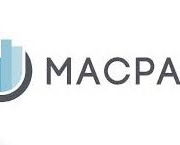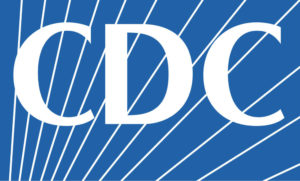COVID-19 Update: Friday, March 26
The following is the latest COVID-19 information from Pennsylvania’s state government as of 4:00 p.m. on Friday, March 26.
Governor Wolf
 According to the Philadelphia Inquirer,
According to the Philadelphia Inquirer,
Gov. Tom Wolf indicated Thursday the state might move straight to opening eligibility to all adults by May 1, as President Joe Biden directed, and skip over phases 1B and 1C, which include different tiers of essential workers.
Asked when the state would move to 1B, the governor said Biden’s plan “sort of throws out the whole 1A, 1B, 1C thing.”
Department of Health
- Acting Secretary of Health Alison Beam signed an amended order stating that “certain vaccine providers” must work with local Area Agencies on Aging and Medical Assistance managed care organizations to schedule vaccines for adults eligible in Phase 1A of the state’s vaccination plan. The order also requires these providers to have the ability to schedule appointments for individuals into the future. Under this order, a vaccine provider that informs a Phase 1A individual that no appointments are available may be subject to enforcement. The order also requires providers to continue to ensure that appointments can be scheduled both by phone and by using online scheduling systems. The order requires vaccine providers to schedule appointments as far in advance as necessary to ensure that appointments are made for individuals in Phase 1A and they are prohibited from including messages on websites or by phone that no appointments are available. For further information, consult the following resources:
- The Department of Health issued quarantine recommendations for individuals who test positive for COVID-19 antibodies. This does not apply to health care facility patients, residents, and staff.
- The Department of Health updated its event reporting system that health care facilities use to report positive COVID-19 test results and deaths involving residents and staff. The system will now allow for manual addition of records and spreadsheet uploads. It also clarified that if a resident or staff member tests positive 90 days after a previous positive test, a new record should be entered into the system. If they test positive within 90 days of a previous positive test, this information should not be entered as a new record. A quick start guide can be found here and further instructions here.
- The Department of Health is establishing a new, long-term, free indoor walk-in COVID-19 testing site for the general public in Centre County from March 30 through May 1. Go here for information about location and hours.
Department of Health – by the numbers
 The daily number of new COVID-19 cases has risen over the past ten days. Today’s total was the highest single-day total since January 30 and the figures in the preceding days also were higher than in the recent past.
The daily number of new COVID-19 cases has risen over the past ten days. Today’s total was the highest single-day total since January 30 and the figures in the preceding days also were higher than in the recent past.- Yesterday the state surpassed one million cases of COVID-19 since the pandemic began, meaning that nearly eight percent of the state’s population has contracted the disease.
- Despite the rising number of new COVID-19 cases the daily death totals are not rising. Nearly 25,000 Pennsylvanians have now died from COVID-19.
- More than 82,268 residents and employees in 1574 long-term-care facilities in all 67 Pennsylvania counties have contracted COVID-19. 12,904 of those residents have died – nearly 52 percent of the state’s death total but a declining proportion in comparison to the earlier months of the pandemic.
- More than 26,000 health care workers in the state have contracted COVID-19.
- For the week from March 12 through March 18 the state’s overall COVID-19 test positivity rate was 6.5 percent, up from 5.7 percent last week.
- The numbers of Pennsylvanians hospitalized with COVID-19, in hospital ICUs with COVID-19, and on ventilators being treated for COVID-19 have been rising for the past ten days.
- Currently, 21 percent of adult ICU beds in the state are unoccupied, as are 15 percent of medical/surgical beds, nine percent of pediatric ICU beds, 22 percent of pediatric beds, and 34 percent of airborne isolation units.
- As of March 26 the state’s vaccine dashboard shows that more 1.5 million Pennsylvanians have received their first dose of a COVID-19 vaccine and nearly 1.7 million have received both doses of a vaccine. These numbers do not include Philadelphia, which operates its own COVID-19 vaccination program.
- The vaccine dashboard shows vaccine totals by county.
- Philadelphia’s Department of Public Health reports that as of March 26, nearly 290,000 Philadelphians have been partially vaccinated and more than 200,000 have been fully vaccinated.
Department of Human Services
 DHS has issued a Medical Assistance Bulletin informing participating providers about the addition of CPT codes M0239 and M0243 to the MA Program Fee Schedule for the administration of unapproved monoclonal antibody therapies for treatment of the COVID-19 effective November 9, 2020 and November 21,2020, respectively.
DHS has issued a Medical Assistance Bulletin informing participating providers about the addition of CPT codes M0239 and M0243 to the MA Program Fee Schedule for the administration of unapproved monoclonal antibody therapies for treatment of the COVID-19 effective November 9, 2020 and November 21,2020, respectively.- At the beginning of the COVID-19 pandemic, DHS and its Office of Long-Term Living requested and received approval from the federal government to address potential staffing shortages in several of its programs and the need for service provision not included in approved service descriptions to ensure that participant health and safety needs could be accommodated for the duration of the COVID-19 emergency. In the wake of the continued persistence of the pandemic, DHS submitted requests to the federal government seeking to extend the effective dates of these waivers. The federal government has approved these requests. These actions were taken for three programs: the state’s Act 150 program, its OBRA and Community HealthChoices (CHC) 1915(c) waivers, and its Community HealthChoices section1915(c) waivers. DHS has published explanations describing each of these waivers along with its plans for phasing them out as the COVID-19 emergency abates. Learn more from the following resources:
- Act 150 – temporary changes
- Act 150 – plan to phase out changes
- OBRA and Community HealthChoices (CHC) 1915(c) waivers – temporary changes
- OBRA and Community HealthChoices (CHC) 1915(c) waivers – plan to phase out changes
- Community HealthChoices OBRA section1915(c) waiver – temporary changes
- Community HealthChoices section1915(c) waiver – plan to phase out changes
- DHS has issued guidance addressing regulatory compliance with tuberculin skin testing requirements after receiving a COVID-19 vaccination.
- DHS’s Office of Long-Term Living has asked organizations that can be helpful in the effort to ensure equitable distribution of the COVID-19 vaccines to complete an Equitable Vaccination Options survey.
Department of State
 While the Department of State has already authorized pharmacists to delegate authority to administer COVID-19 vaccinations under their supervision to a number of other types of licensed health care professionals, it has now extended that authorization to others who have been authorized or made eligible to administer COVID-19 vaccinations by way of state or federal government action, including the March 10, 2020 declaration and subsequent amendments issued by the U.S. Department of Health and Human Services under the PREP Act. See the latest Department of State notice here.
While the Department of State has already authorized pharmacists to delegate authority to administer COVID-19 vaccinations under their supervision to a number of other types of licensed health care professionals, it has now extended that authorization to others who have been authorized or made eligible to administer COVID-19 vaccinations by way of state or federal government action, including the March 10, 2020 declaration and subsequent amendments issued by the U.S. Department of Health and Human Services under the PREP Act. See the latest Department of State notice here.
Around the State
- Allegheny County will introduce a new vaccine registration system next week, the Pittsburgh Tribune-Review reports.
- The county also is expanding eligibility at its own sites to everyone in group IA, adding people between the ages of 50 and 64 with certain medical conditions. The Tribune-Review explains.
- Amid rising case counts, Allegheny County public health officials are advising residents to continue to observe mitigation recommendations, according to KDKA.
- Berks County commissioners heard a similar message from their emergency services director during their recent public meeting, WFMZ reports.
Resources to Consult
Pennsylvania Department of Human Services
Pennsylvania Department of Health
Centers for Disease Control and Prevention
 Department of Health – by the numbers
Department of Health – by the numbers Teresa Miller has resigned as DHS Secretary
Teresa Miller has resigned as DHS Secretary Around the State
Around the State The report includes recommendations for:
The report includes recommendations for: The Department of Health has
The Department of Health has  The moratorium on the two percent sequestration of Medicare payments could be extended under a bill the U.S. House of Representatives may consider this week.
The moratorium on the two percent sequestration of Medicare payments could be extended under a bill the U.S. House of Representatives may consider this week. SNAP has urged Congress to extend the Medicare sequestration delay on a number of occasions, doing so most recently in this
SNAP has urged Congress to extend the Medicare sequestration delay on a number of occasions, doing so most recently in this  Acting Secretary of Health Beam issued an order making March 31 the date by which all vaccine providers should have Phase 1A-eligible Pennsylvanians’ vaccine appointments scheduled. See
Acting Secretary of Health Beam issued an order making March 31 the date by which all vaccine providers should have Phase 1A-eligible Pennsylvanians’ vaccine appointments scheduled. See  Centers for Medicare & Medicaid Services
Centers for Medicare & Medicaid Services Centers for Disease Control and Prevention
Centers for Disease Control and Prevention